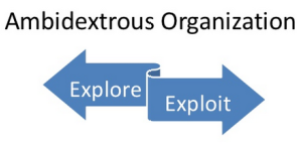I often get very frustrated at the huge loss of energy by many organizations in piecing together a more robust innovation structure. Somehow they lose it. They forget to think it fully through, rush to build some of the component parts and then spend a lot of their time, backfilling or bridging the gaps they created in the first place.
I really would like to reduce this diffusion of spent energies, so these efforts are directed at the critical points of understanding within the innovation process, to drive through new initiatives in a sustaining way. If we can gain this depth of understanding by all, then there is a greater identification to the whole.
Also, we gain a better appreciation of the parts we are playing within the system to make a more positive contribution to growing your innovation activities in a clearer environment. It would improve innovation identification and outcome results.
So with this thinking behind us, Jeffrey Phillips at http://www.innovateonpurpose.com and my organization through http://www.agilityinnovation.com, we began to talk through and exchange ideas and concepts for building a collaborative innovation framework.
We wanted any end result to be open and freely shared with anyone.
We wanted others to build on these early attempts to move, if we can, to a better standard. We recognized whatever we produced needed adapting to meet different circumstances but was generic enough to be recognized.
Continue reading “The thinking behind creating an open collaborative innovation framework”
